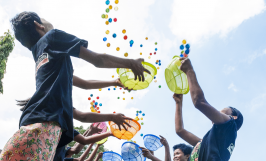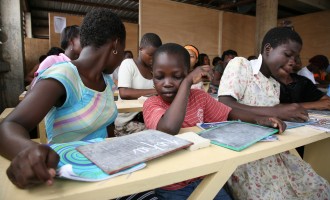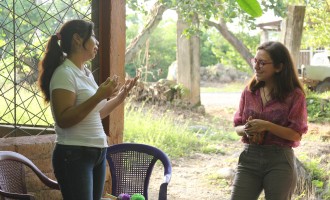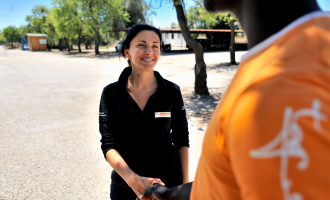Mentoring in Switzerland
The challenges

When unaccompanied children are entitled to stay in a country, their social inclusion and integration into local communities is vital. In Switzerland, many unaccompanied and separated children find it difficult to interact with the local community. Despite authorities’ efforts, many children only really interact with staff at their accommodation centre and with their school teachers. In some cases, children are not provided with guardianship quickly enough and there are not enough registered foster families to support the number of children.
The response
International Social Services (ISS) Switzerland runs an innovative mentoring project called “An extra place at your table” through which over 300 unaccompanied and separated children are connected with local mentors, individuals, couples or families. The mentors help the children with daily aspects of life, invite them to join special moments with family, spend time together doing sport and other leisure activities; and help in their search for internships, apprenticeships or housing. A real and lasting bond is often established over time: for the child, the mentors become a reference and an anchorage point in their new environment. And in some cases, the mentors become their foster families.
The impact

The mentoring project helps children to integrate in countries of destination; it helps ensure that unaccompanied and separated children access their right to care, protection and development.
Amin’s story*

Amin meets his mentors, Marie and Pierre, by the lake on a beautiful summer’s day just before the holidays.
Marie and Pierre, though they know little of his past, are aware that it’s possible that Amin’s journey to Switzerland involved crossing the Mediterranean by boat and are hesitant to suggest a boat ride. However, they agree it’s important to make no assumptions and, after a successful game designed to break the ice, they mention it to Amin who loves the idea.
They are at ease in each other’s company from the start. Over time, the three build a bond and Amin confides in Marie and Pierre about his life in Eritrea, his experience in school, and the problems he faces in the centre. Amin knows how difficult it will be for him to find somewhere to live but also knows that, for him, it will be the beginning of a new chapter. And so, with the help of Marie, Pierre, and his educator, Amin starts looking for a new home. In a few short weeks, Amin is living in an apartment with other students and often spends time with his mentors during the weekend.
* All names of children have been changed.


Reflecting on how Amin has changed since he started his mentorship, his educator says Amin is radiant. The support of his mentors has had a positive and tangible effect on the young asylum seeker, who feels full of energy once more and hope for the future
Read more promising practices





